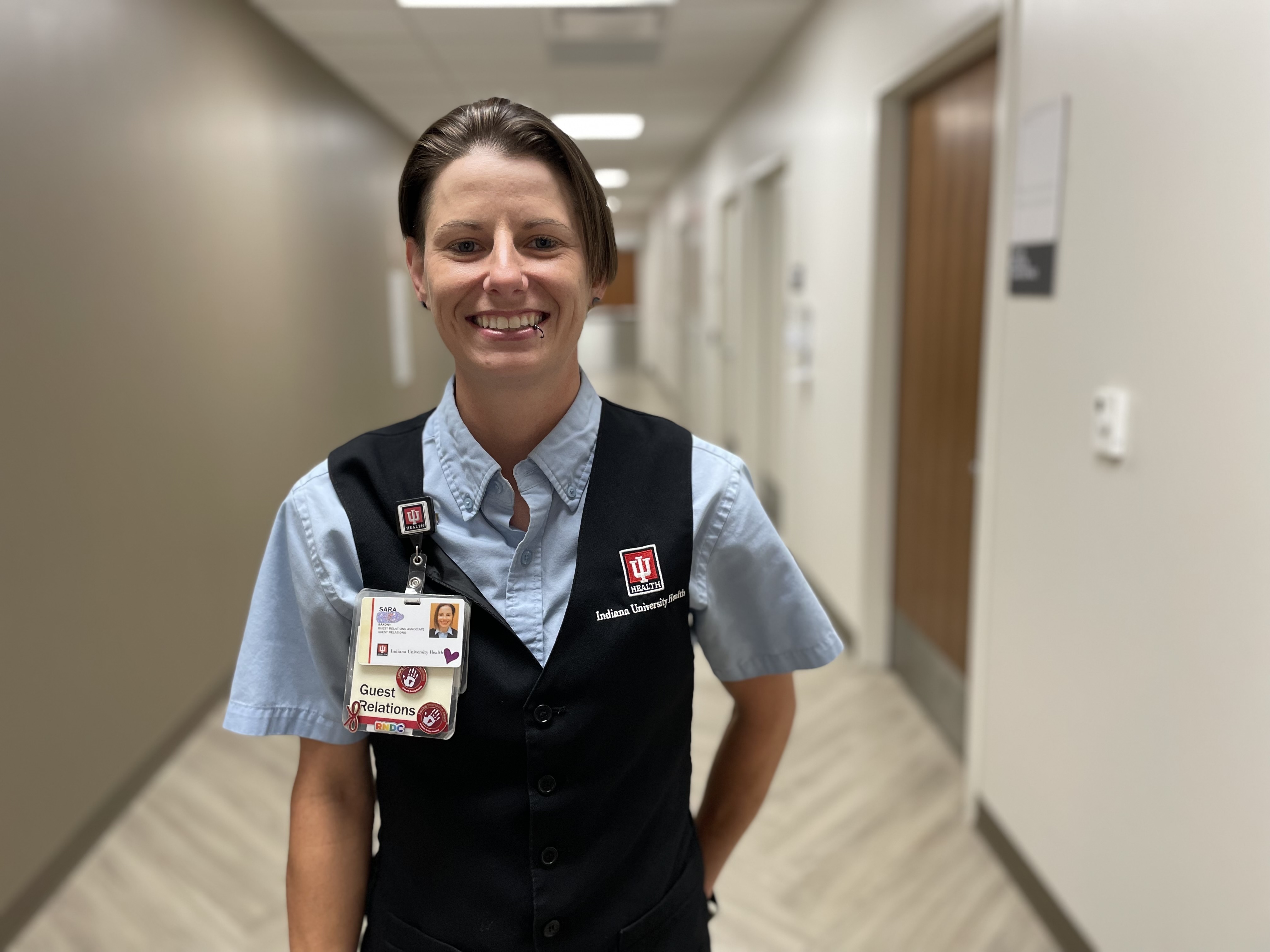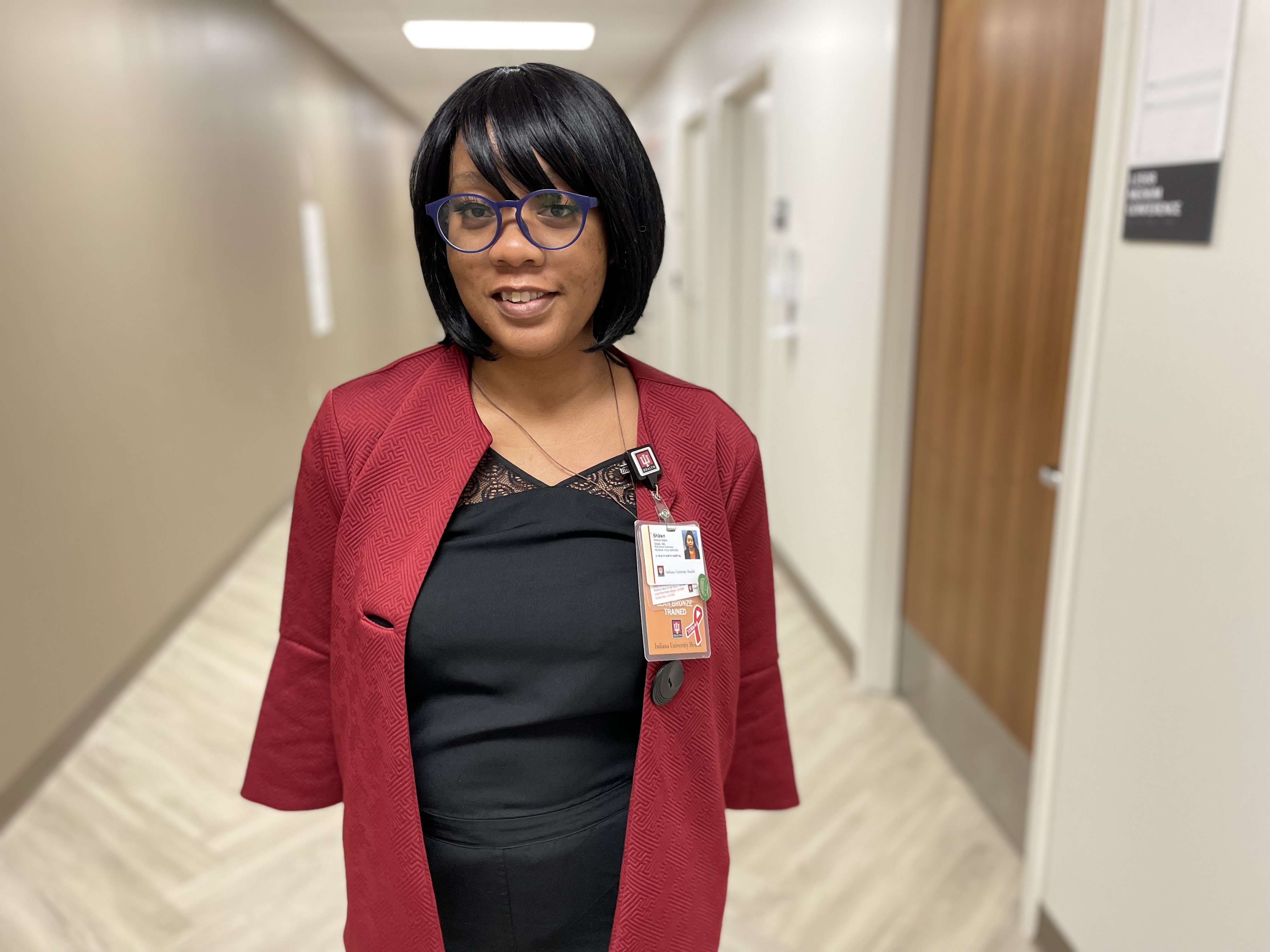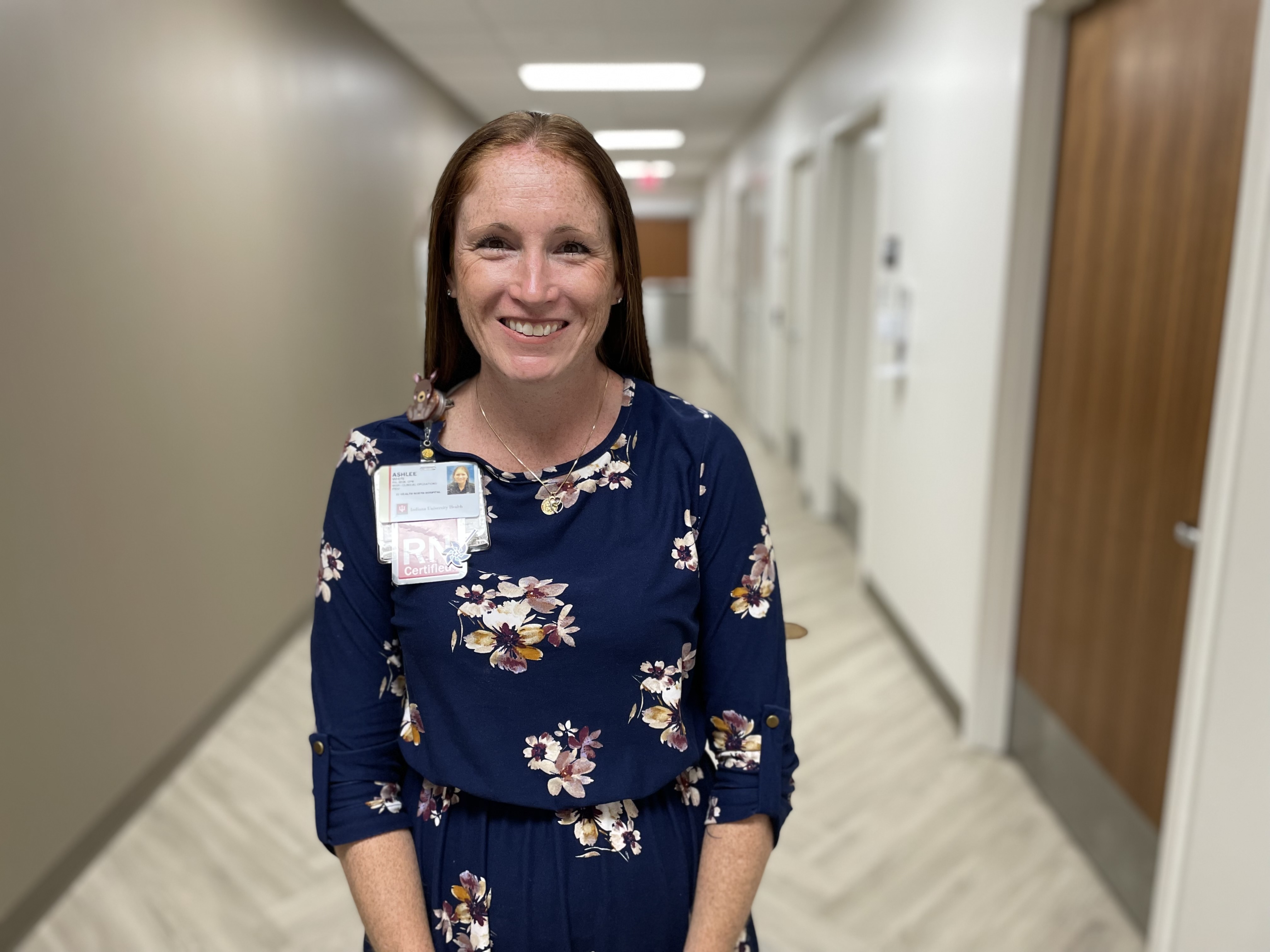Created in 2021, the LGBTQ+ Affinity Group aims to bring awareness, support and education to team members and the patients they serve at IU Health North, Saxony, Tipton and West hospitals.
By Charlotte Stefanski, cstefanski@iuhealth.org, writer for IU Health’s Indianapolis Suburban Region
When Sara Henry came out to her family at 18 years old, she was met with a wave of love, encouragement and support.
Now, she’s hoping to bring that same feeling to team members at IU Health who identify with the LGBTQ+ community.
Henry first joined the IU Health Saxony team seven years ago, starting off in housekeeping and then working as a patient care assistant for five years. For the last two years, she’s been in her guest relations role, now serving as a team lead.
When the Indianapolis Suburban Region (ISR)—which includes IU Health North, Saxony, Tipton and West hospitals—created an LGBTQ+ Affinity Group in 2021, Henry jumped in.
The group works to bring LGBTQ+ awareness, support, and education to team members and the patients they serve. It is open to team members who identify as LGBTQ+ and allies of the community.
“With working at a smaller facility like Saxony, it was really important for me to get the LGBTQ+ community together; to make sure people felt understood and like they’re not alone,” Henry explained. “For the longest time, I thought I was the only gay person that worked there. But the more you start to get out there, you realize that’s not entirely true. It was just really important for me to get us all together.”

While the COVID-19 pandemic made it difficult for the group to hold in-person meetings and activities, it still had some major milestones, including the Pride Passport event and pride parades during Pride Month each June.
Henry was also the first team member to host a pride parade at IU Health Saxony in 2021. Now, pride parades are held annually at IU Health North, Saxony, Tipton and West hospitals.
“People ask me questions all the time, because they know that I’m not going to get offended, or they’re just trying to understand things from a different perspective.” Henry said. “I enjoy helping to be a voice for the members of the LGBTQ+ community, whether they’re in the group, working at IU Health, or outside of work.”
Meet the new leaders of the ISR LGBTQ+ Affinity Group
As the affinity group has grown, as has the need for leadership. Henry is co-chair with two fellow team members—Shawn Hinton-Clark, a Revenue Cycle Services specialist at the IU Health Joe & Shelley Schwarz Cancer Center in Carmel, and Ashlee White, manager of Clinical Operations for IU Health North’s Pediatric unit, Pediatric Intensive Care unit (ICU) and Neonatal ICU.
For Hinton-Clark, discussions on the LBGTQ+ community, pronouns and labels weren’t always the norm. But as her children grew up, that changed.
She recalled one afternoon when her daughter came home from school in tears.
“She was like, ‘I don’t know what my label is,’ and we went through the whole conversation,” Hinton-Clark said.” I said, ‘I don’t care how you label yourself. Stay in school, love who you love. As long you’re respectful, you’re good with me.’”
Later, her daughters brought home friends who identified as LGBTQ+, but their parents weren’t accepting of it. Hinton-Clark’s house had become the “safe house,” and anyone was welcome. As the years went on, she went to Pride Fest with her daughter and joined local LGBTQ+ groups.
Now, Hinton-Clark is hoping to bring that same support system to her fellow team members.
“I wanted to be a voice and to better educate myself—not only with events during Pride Month, but also how to interact with my co-workers and to better understand the things they go through,” Hinton-Clark said.

White joined the group two years ago for similar reasons. She wanted to be an ally, not only for her fellow team members, but to be an advocate as a nursing leader for young patients and LGBTQ+ couples looking at parenthood journeys.
“We see lots of teenagers and we have a lot of mental health issues in the community right now. A lot of them stem from sexual identity, and the struggles that they have at school or at home or with their peers,” White said. “I wanted to be that voice for them and also be able to learn from the group about how we can better support them as a healthcare team.”

Creating a support system for team members
So far, the group has been focusing on the region’s upcoming pride parades and growing the group’s numbers.
As the leaders get more settled into their leadership roles, they want to hear from the group’s members (and potential members) about what activities and events they’d like to see in the future—with an emphasis on creating as support system and educational opportunities.
For Henry, Pride Month is a time to reflect on the 1969 Stonewall Uprising in Manhattan and how far the LGBTQ+ community has come.
She knows that groups like this are essential in helping team members feel supported. And from her own experience and the experiences of so many others, she knows coming out can be a nerve-wracking situation.
“I think it’s important that we come together, stand up for what we believe in and help continue to show our support,” Henry said. “I always want people to feel like they can be their true, authentic self. A lot of people are scared to come out and they just need to be supported.”
White and Hinton-Clark also want team members and patients to know their support isn’t only for the month of June.
“It’s a month to celebrate them being able to be who they are. And then hopefully, parents and families are more accepting, and then maybe kids are able to share who they are,” White said. “I hope that that it will help them be a little more comfortable. Maybe someone will be brave enough to share their story when they hadn’t been in the past.”
“Pride Month shows how far we’ve come and how far we have to go. It’s a time to reflect and say, ‘I can actually get out there and do something.’ I can show my neighbors, children and team members I’m here if they need support. Educate me. Help me help you,” Hinton-Clark said.
